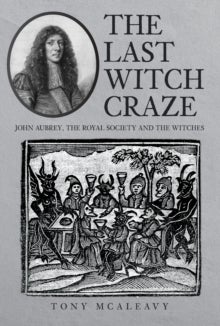
The Last Witch Craze av Tony McAleavy
299,-
The seventeenth-century man of letters John Aubrey is remembered, above all, for his great biographical work, Brief Lives. He also wrote pioneering works dealing with education, geology, languages, archaeology, history, place-name study and folklore. Aubrey was a Fellow of the Royal Society. Other early members of the Royal Society included Robert Boyle, the greatest scientist of his generation and Henry More, one of England¿s leading philosophers.Aubrey, Boyle and More promoted new thinking about the natural world and championed the use of experimental science. They also believed in demons and angels and the authenticity of witchcraft. Aubrey recommended ways of countering witchcraft through horseshoe magic and suggested that gifted schoolboys should be taught to communicate with good spirits through the use of crystal balls. Boyle publicly endorsed the reality of witchcraft based on a case study from France. Henry More attempted to explain scientifically how witches could leave their








